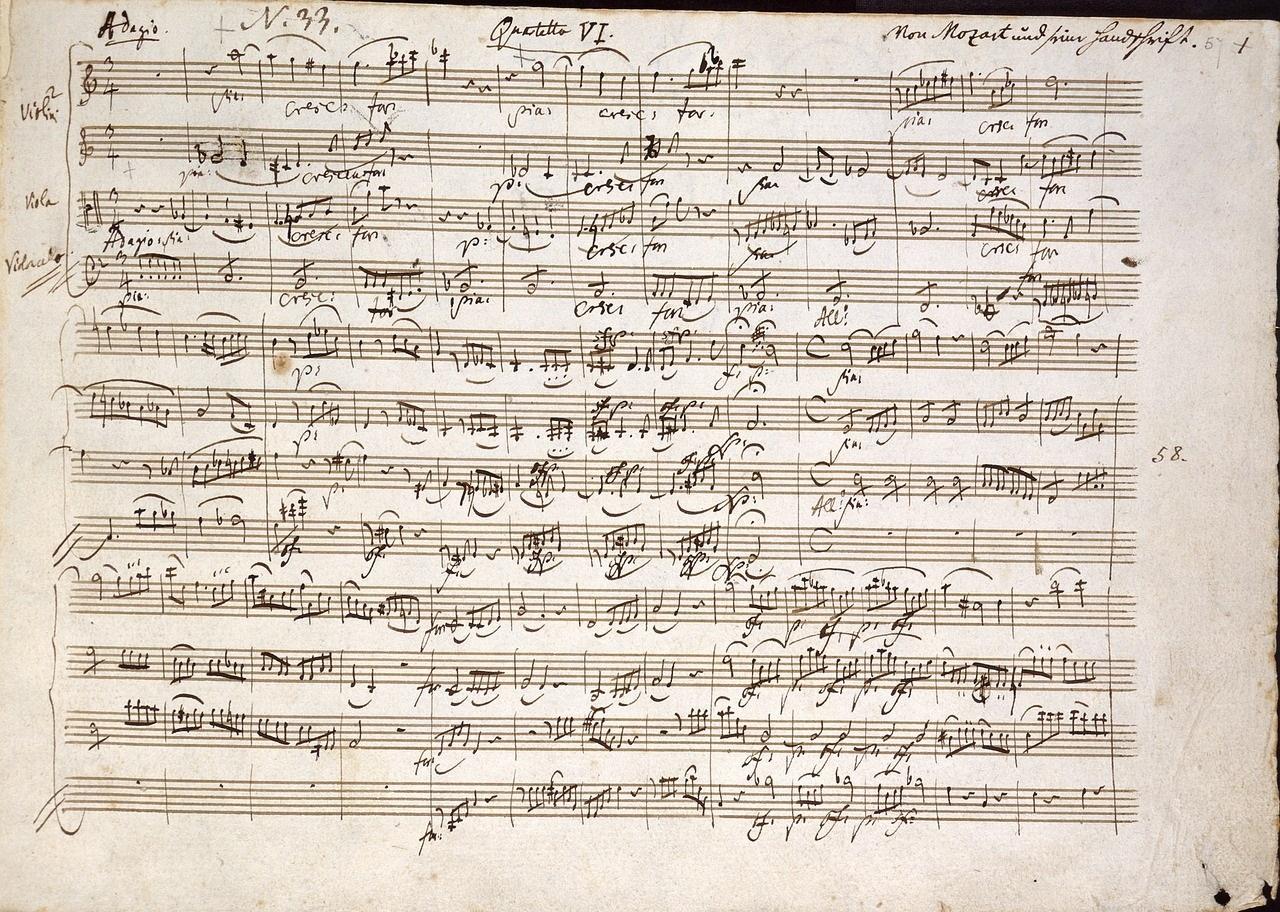-
Posts
448 -
Joined
-
Last visited
-
Days Won
5
Everything posted by FreakyFoucault
-

2018 Acceptances
FreakyFoucault replied to ashley623's topic in Literature, and Rhetoric and Composition
Yup. And each time, I'm more schlacked than the last. Also, UCLA hasn't linked their portal to outside documents (it's mid-January... c'mon...), so they're displaying my GRE scores as "Not Received." Which is funny, because I'm pretty sure I still have the $27 hole in my wallet from when I first sent them. -

If not English, then _____ ?
FreakyFoucault replied to FreakyFoucault's topic in Literature, and Rhetoric and Composition
That’s awesome! I was the kid whose clay sculptures always exploded in the kiln in middle school art class. The phrase “Oh, honey” was often directed at me lol What kind of stuff did/do you make? -

If not English, then _____ ?
FreakyFoucault replied to FreakyFoucault's topic in Literature, and Rhetoric and Composition
Ahhhh too bad. I’d much rather trot to Research Methods 399 on a Clydesdale than in my lousy Cobalt... -

If not English, then _____ ?
FreakyFoucault replied to FreakyFoucault's topic in Literature, and Rhetoric and Composition
Mad props would be in order if you saved by commuting to class via horse -

2018 Acceptances
FreakyFoucault replied to ashley623's topic in Literature, and Rhetoric and Composition
@jelris Congrats, man! -

2018 Acceptances
FreakyFoucault replied to ashley623's topic in Literature, and Rhetoric and Composition
Truer words couldn’t be said! -

2018 Acceptances
FreakyFoucault replied to ashley623's topic in Literature, and Rhetoric and Composition
Definitely beats the dream I had the night before the GRE about showing up late to the test center, and, of course, sans pants... -

2018 App Crunch Time
FreakyFoucault replied to Pezpoet's topic in Literature, and Rhetoric and Composition
Somebody's January sure just got real! Congrats as well! -

writing sample seems like shit
FreakyFoucault replied to adroitdancer's topic in Literature, and Rhetoric and Composition
LOL I'm dying! -

writing sample seems like shit
FreakyFoucault replied to adroitdancer's topic in Literature, and Rhetoric and Composition
I mentioned this in a different thread, but I'd strongly recommend shredding your physical WS rough drafts, if you have any still lying around. You must be careful, however, to do this without actually looking at the contents thereof because if you find an error, you're going to wonder, "Oh shit, did this sneak through to my final version? Ermahgerd, is it too late to email adcomms a revised kerpy???" Other things you can do with old WS drafts: 1) tape them into a hat (it's cold here in the Midwest, after all); 2) make an old-school fortune teller with which you can prognosticate your admission chances; 3) construct a paper airplane to show your engineering friends that their jobs aren't really that hard; 4) use for kindling (see first point); or, finally, 5) fold an individual piece in half more than 103 times and break the Universe, at which point, you needn't worry any more about adcomm decisions... (https://sploid.gizmodo.com/if-you-fold-a-paper-in-half-103-times-it-will-be-as-thi-1607632639) Did I miss any? -

2018 App Crunch Time
FreakyFoucault replied to Pezpoet's topic in Literature, and Rhetoric and Composition
I'm sorry to hear that, @unicornsarereal... At this point in the game, I'd probably try to call your professor for that last rec letter. Same thing kind of happened to me (although only a few days before one of my apps was due), and it turned out that the letter-submission-instruction e-mail got buried in a previous thread with four or five other schools' messages. Sending reminder e-mails didn't do much good since they again attached to that same thread. Finally, I just called my professor, and she was totally nice about it. She knows that the struggle is real. Hopefully, they all do. I don't think a friendly (albeit panicky) call would be unduly importunate. Good luck! -

If not English, then _____ ?
FreakyFoucault replied to FreakyFoucault's topic in Literature, and Rhetoric and Composition
Gotcha! Well, for what it's worth, my sister recently finished what can sort of be construed as a masters in music performance in Paris, and she absolutely loved it. Of course, how could one not, but she's all about that France life right now. -

2018 App Crunch Time
FreakyFoucault replied to Pezpoet's topic in Literature, and Rhetoric and Composition
Thanks, @Warelin! I don't mind at all! My primary field is Victorian lit, especially related to the history of science (particularly abnormal psychology) and form in the Victorian novel (vague, true, but I'm working on it). But I'm also interested in the Beats and postmodern fiction (especially in the vein of Pynchon and DFW). I applied to the Ivies (cue that deGrasse Tyson "We've Got a Badass Over Here" meme...), Stanford, UCLA, Berkeley, OSU, Chicago, Northwestern, UVA, Johns Hopkins, and Duke. And so, -

If not English, then _____ ?
FreakyFoucault replied to FreakyFoucault's topic in Literature, and Rhetoric and Composition
@frenchlover, hahaha that's fantastic. Did you do your undergrad in France? -

If not English, then _____ ?
FreakyFoucault replied to FreakyFoucault's topic in Literature, and Rhetoric and Composition
Foucault approves! -

2018 App Crunch Time
FreakyFoucault replied to Pezpoet's topic in Literature, and Rhetoric and Composition
Okay, please tell me I'm not the only DFW fan who can't think of Purdue without hearing "Year of the Purdue Wonder Chicken" ... -

If not English, then _____ ?
FreakyFoucault replied to FreakyFoucault's topic in Literature, and Rhetoric and Composition
Those are some really compelling second choices, @a_sort_of_fractious_angel! It sounds like you'll make a great TA or adviser someday! I have this irrational image in my head, perhaps from my experimental-psychologist aunt, that all psych PhDs do is recruit poor, starving undergrads for their creepy Stanford-prison-experiment-esque projects. It's probably not true, but still, yikes! Not for me either... I have, in the past, incorporated some legal elements in my research, particularly property and marriage law in the Victorian era. But nothing too fancy. If anything, taking law classes helped me understand how to do three things: 1) ask a question; 2) understand an argument; and 3) build off previous arguments (i.e. precedents). Unfortunately, I haven't had the opportunity to intersect literature with music, but I know of some scholars who do. Maybe an avenue to take up in grad school (knocks on wood)! -
Hi, everyone! Out of sheer curiosity, I was wondering whether any of you have entertained the (of course, unrealistic) thought of doing a PhD in something other than English/Comp./Rhetoric, etc. I know at this point we're all probably for English do or die, but if, say, a PhD or MA in English were off the table, what subject would be your second choice? I'm guessing that many of you doubled majored, so I'm sure there are possibilities. At first, I thought I wanted to be a lawyer. But half way through my senior year, I had a quarter-life crisis and determined that law was not a good fit for me. Then, for about one second, I thought about doing a PhD in political science (my other major). That sounded awful, however, so I then realized that English was what I really wanted. HOWEVER I was briefly a music major, and I've been a lover of classical, or as my theory professor preferred, art music, all my life. Over the years, I've begun to wish more and more that I would've slogged through the rest of the major. So, though I know basically nothing about the life of a musicologist, I'm going to say that my fantasy PhD choice would be in musicology! I'm curious to hear what your fantasy choices are!
-

2018 App Crunch Time
FreakyFoucault replied to Pezpoet's topic in Literature, and Rhetoric and Composition
About two minutes after I submitted my last application, I gathered all my writing-sample rough drafts strewn across the floor and shredded them to pieces. I may or may not have laughed maniacally while doing so. I also second the goodness of Black Mirror. It's been a while since I've seen a pilot so well realized and paced. On a completely different TV note, I'd recommend The Good Place, if you haven't seen it yet. Ted Danson will lead you through these trying times! -

2018 App Crunch Time
FreakyFoucault replied to Pezpoet's topic in Literature, and Rhetoric and Composition
Hey! Well, now that I don't have to compulsively proofread my writing samples or Flaubertify my SOPs, I've actually resumed doing work at work (wild concept, I know). More important, I've begun to pick up where I left off on exercising and playing piano. Other than that, I've been catching up on reading, writing a little here and there, and reading the news again, but I can't say I have anything that interesting to do! Just trying not to panic. Kind of tall order, even after having submitted my last application only five days ago. Oh well... -
I completely agree with @unræd. I'd again emphasize that my situation was unique in that I had a lot of time to spend on preparation, so I didn't need to worry much about prioritizing other aspects of my applications. If, however, you have only a few months (especially if those few months are during your senior year), I'm not sure what I'd recommend other than the Princeton Review book, Norton's headnotes, and maybe a prep test or two. Definitely take the most recent prep test, and try your best to understand the correct answers from ETS's point of view (you'll have to make up the rationales since ETS doesn't explain them). If you're taking a year or two off after graduation, don't procrastinate. As I said before, even after reading the anthologies, I still found the test difficult and frustrating. I came to the test center with an inordinate amount of confidence; I left it deflated and grumpy. I know this will come off as reflection bias, but when you encounter a tough passage(s), you really have to try to maintain your composure and press on. For example, for a good part of my life, I played concert piano, and the first rule of performing is that you spend exactly zero seconds worrying about making or having made a mistake. Your pink slipped over B flat and hit B natural? Orchestra starts playing Mozart's Piano Concerto No. 20 when you prepared a different one (https://www.youtube.com/watch?v=fS64pb0XnbI)? Oh well, keep playing. Also, I do agree that Princeton Review's book is more helpful than not, but the format of their practice test is not illustrative of the modern exam. If anything, like @unræd mentioned, you should try to learn PR's strategic process of narrowing down choices based on inferences, context clues, and your overall knowledge of different literary eras. In addition, I'd recommend becoming a natural at speed reading. I got a long passage from a well-known critical theorist who's essentially a latter-day Heidegger, and it would've taken too much time to break it down. You read what you can, and move on to the answers. Oh well, keep playing. Other than that, I think @unræd covered everything. Don't feel bad if you got a lower score. I agree that the test certainly tests something (besides the tautological test-taking acumen), but you're not less of an English major if you do poorly on it. At the end of the day, there's not a whole lot you can do. I wouldn't have been surprised to have scored below the 50th percentile, based on my perception of how I performed. In fact, even if you memorized all the literature in the world, I'm reasonably sure that you could still get tripped up on the pacing or the format. Further, the test offers no real measure of your ability to do research, but that's what the PhD is all about. Maybe the purpose of the test is to teach irony? I wouldn't be surprised.
-
Hi, everyone -- long-time lurker here, finally coaxed out of the shadows! I was fortunate enough to do well (97th percentile) on the Lit subject test, but my after-graduation circumstances made preparing much easier. I decided against law school pretty late in my senior year (triggering a quarter-life crisis, but that's for another day), so applying for a PhD as an undergrad was impossible. Instead, I found a job in health care that involved a fair amount of downtime I used for self-study. It also helped that my hours were from 2:30 pm to 10 pm, so I had mornings free. About ten months before I took the test last October, on the recommendation of my English advisor, I bought all the Norton anthologies (English and American -- there went like two weeks pay). Since my undergrad English department was small, and I (initially) triple majored, then double majored, and studied abroad, I didn't have time to take every single English course, so the anthologies played a huge role in bringing me up to speed in literature that I completely missed. What helped the most, though, was taking copious notes (~250 pages) on everything that I encountered in the anthologies. The process of underlining important passages, copying them over to my computer, and detailing as much as I could in a Word doc vastly improved my comprehension of the anthologized works, some of which appeared on my test. It also helped with identification, but, as others have noted, that aspect of the test has been eclipsed by what ETS vaguely calls "Literary Analysis" [read: comprehension]. I also regularly reviewed these notes, so most of the material stayed in my head. In addition, I found that studying for the verbal section of the general GRE went a long way toward giving me a solid understanding of how ETS asks "analytical" questions. The content is obviously different, but the style of question-asking on both tests is, in my opinion, similar. In terms of test materials, I used the notorious Princeton Review, the awful REA books, and six past tests that I found in the tenebrous reaches of the Internet. Like others here, I think the Princeton Review book is probably worthwhile to read but not terribly relevant anymore. Neither the frequency nor format of identification questions (i.e. those block quote sections followed by a list of titles) on PR's practice test reflects the modern iteration in any sense. Still, I found some of PR's comprehension and grammar-analysis questions useful, so if you've got the time and money, buying the book wouldn't hurt. On the other hand, REA's book is inaccurate, aesthetically repulsive, poorly bound, and fucking dumb in all respects, so I wouldn't bother. The other real practice tests I found ranged in utility. I'm still shocked at how identification-heavy the early tests were (especially '82). Again, if you have the time, I'd complete those tests (under time constraints, perhaps to learn how to pace yourself and get a feel for comp questions), but you must be mindful that the modern test, as Pezpoet said, is more or less all comprehension. Nevertheless, considering the dearth of prep materials, I'd take what you can get (except REA). Ironically, the test ETS offers online is probably the closest to the actual version (although, looking at it now, it seems a little out of date). Ten months passed, and after having learned a ton of literature, crammed a lot of titles/characters/authors, and made offerings to the Pantheon, there I found myself in a cramped lecture hall, butterflies a-flutter. Luckily, one of my friends was taking the chemistry test, so it was a huge help to see a friendly face. We joked around like idiots for a half hour, which helped lighten my anxiety. If you can arrange to take the test with a friend, I'd do it. At any rate, despite having studied for nearly a year, I still found the actual test a sordid affair. Somebody on GC once said that it was "akin to being mugged." Couldn't have said it better myself. An hour or so in, my pacing was fine until I got bitch slapped by a really long Middle English passage, and thereafter I went into survival mode. The test over, my friend and I drank all the beer we could find, agreed that English and Chemistry are stupid, and wondered what exactly ETS does with our broken dreams and $4000 test fees. I duly received my score 5 weeks later and found out that I did better than expected. It's quite possible that fight-or-flight nerves simply made a difficult situation worse. I'm sure our hunter-gatherer ancestors would get a good chuckle out of that. As to whether the subject score matters, I have no idea. My uncontroversial, unoriginal guess is that the general GRE (verbal/AW) matters more for first-cut, and then maybe subject test carries a little weight later on, especially for deciding between comparable candidates. But I have no solid evidence (empirical or anecdotal) to back this up, so my conclusion is do the best you can, and if your score isn't too high, don't give up. If I were on the committee, I'd put much, much, much (did I say much?) more weight on writing sample, SOPs, and rec letters. As we all know, a test that attempts to grill undergrads on literature ranging over 4000 years is equal parts absurd and sad. I hope it's done away with in the future. I don't feel proud that I scored well. Rather, I feel lucky that I got a version of the test that somewhat matched what I studied, and also that I kind of learned how ETS asks questions. That said, it was simply a joy to read the Norton anthologies, and I'd recommend doing so regardless of whether you're taking the test (if you have time). That's all I got, and if you have any questions, feel free to PM me! And good luck to all of you on your admissions!




